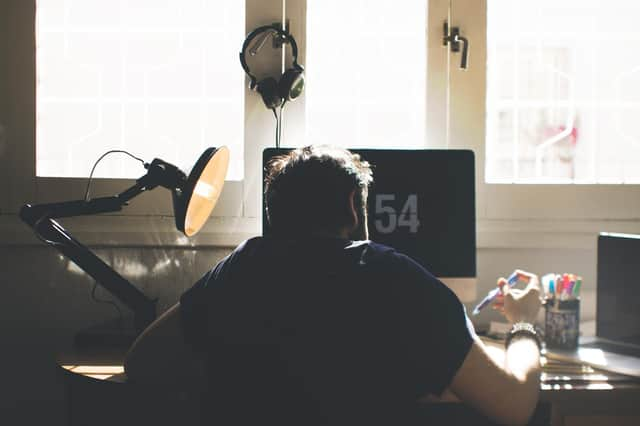Column: The blurring of work and home life into one long shift is a legacy of lockdown


It looked pretty much the same, but felt completely different.
The way we worked before March 2020 has, in all honesty, gone for good.
Advertisement
Hide AdAdvertisement
Hide AdWorking from home will become the norm for this, and future, generations.


Anyone leaving school or uni now won’t know what it is like to be part of an office which is busy, messy, and occasionally fractious.
Rooms which once teemed with life and noise - or in some cases over-bearing silence - are now sterile places where everyone sits yards apart at desks shorn of anything personal, colourful or different.
We book in, we log on, we work, we go home.
Eighteen months on, and I still have mixed feelings about WFH.
Advertisement
Hide AdAdvertisement
Hide AdThe transition from office desk to dining room table was remarkably easy in all honesty, but the novelty factor wore off a long time ago.
I like the fact I don’t have to commute, even if it’s just ten minutes up the road - on a cold, wet winter morning, it’s so much easier to shuffle through to the living room with a cuppa in hand, and log on.
But it’s the hidden effects of WFH which are now starting to surface for many.
Work expands to fill the time, and in lockdown when there was simply nowhere to go, I wonder how many people found themselves hunched over a laptop until their shoulder froze, their back seized and their entire frame creaked like an old ship.
Advertisement
Hide AdAdvertisement
Hide AdThe connections you had in the office cannot be replicated through hangouts on a laptop screen.
Colleagues have been reduced to the dimensions of a face in a tiny screen on daily conference calls.
And you miss the buzz and banter of office life - lugging into chats about so and so, debating the merits of last night’s telly, and also, more importantly, asking for some informal on the spot feedback on a story.
And when work sits two feet from your sofa, the lines between the two become even more blurred.
Advertisement
Hide AdAdvertisement
Hide AdNine to five becomes eight ‘til six … ish. Then six becomes seven.
I guess WFH works because people were willing to make it happen.Sure the technology helped, but our willingness to blur the boundaries between home and office life were just as important.
It seemed to be taken for granted that we all had spare rooms or spaces to turn into makeshift offices.
The WFH experience of someone with the cash to splash out on one of those funky garden offices, and that of someone stuck in a pokey flat with minimal light and zero outside space will be very different.
Advertisement
Hide AdAdvertisement
Hide AdFactor in family life, caring for elderly relatives, and - perhaps the often overlooked issue - loneliness and a feeling of isolation, and it is far from the perfect alternative when offices suddenly become out of bounds as leases are torn up and keys handed back.
We’re social creatures. We enjoy the company of good people (and put up with the grumpy ones).
Just because we can WFH doesn’t mean we all should.
The whole work-life balance needs recalibrated post lockdown.
